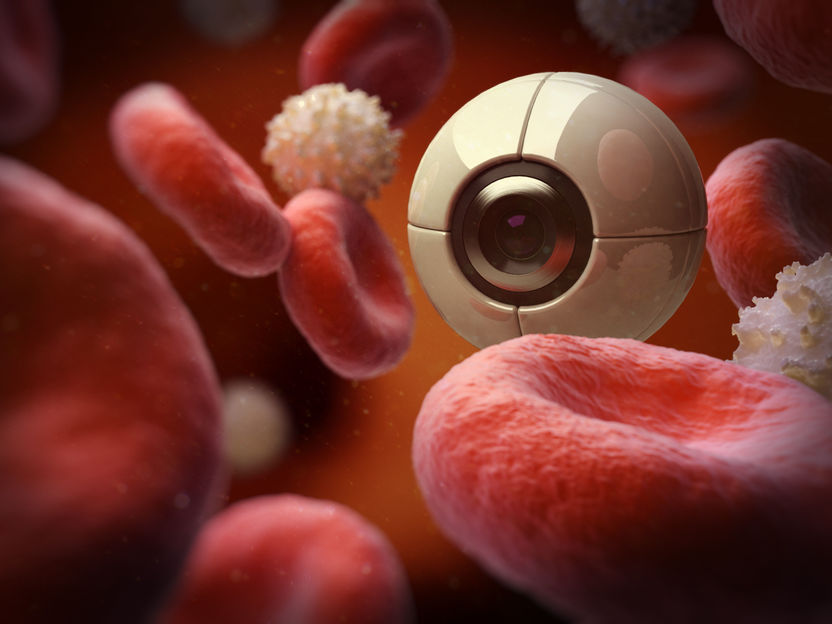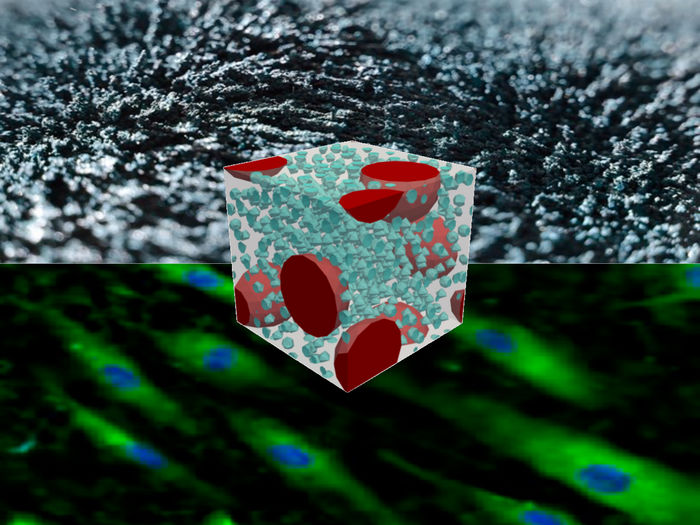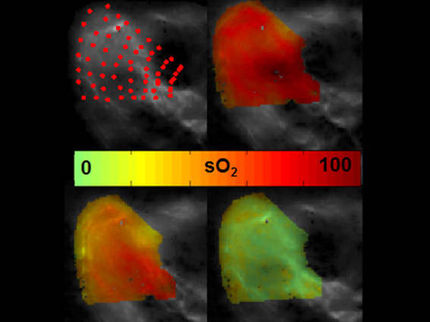Real-time tracking of moving micro-objects deep in the tissue demonstrated for the first time
Physics that gets under your skin
Due to modern advances in medicine ever smaller objects are moved through the human body: nanotherapeutics, micro-implants, mini-catheters and tiny medical instruments. The next generation of minimally invasive microsurgery will enable small micro robots to move with their own drive through the body and through the tissue to transport substances and micro-objects. Therefore, new methods must be developed to locate these micro-objects precisely and to monitor their movement. Conventional methods such as ultrasound, X-ray or magnetic resonance imaging (MRI) fail either due to insufficient resolution or due to long-term damage from radioactivity or high magnetic fields.

Visional minimal invasive microsurgery - with the first-time real-time tracking of mobile micro-objects deep in the tissue, a decisive step has been taken.
Science Picture Co / Alamy Stock Photo
Prof. Oliver G. Schmidt and Dr. Mariana Medina Sanchez from the Leibniz Institute for Solid State and Materials Research Dresden (IFW) and PhD student Azaam Aziz succeeded with a decisive step here. They were able to track the movement of individual micro-objects below centimeter-thick tissue in real time. They used the so-called multispectral optoacoustic tomography (MSOT). This technique combines the advantages of ultrasound imaging in terms of depth and resolution with the possibilities of optical methods to map molecular structures. This allows them to clearly distinguish spectral signatures of the artificial micro-objects from those of the tissue molecules. For the investigation, the micro-objects were coated with gold nanorods. By this trick, the contrast of the signal could be significantly improved. This made it possible for the first time to track microstructures and system components moving deeply in tissue.
Original publication
Other news from the department science

Get the life science industry in your inbox
By submitting this form you agree that LUMITOS AG will send you the newsletter(s) selected above by email. Your data will not be passed on to third parties. Your data will be stored and processed in accordance with our data protection regulations. LUMITOS may contact you by email for the purpose of advertising or market and opinion surveys. You can revoke your consent at any time without giving reasons to LUMITOS AG, Ernst-Augustin-Str. 2, 12489 Berlin, Germany or by e-mail at revoke@lumitos.com with effect for the future. In addition, each email contains a link to unsubscribe from the corresponding newsletter.
Most read news
More news from our other portals
Last viewed contents
Procovery
Saline_(medicine)
Sub-Saharan_DNA_admixture_in_Europe
West_syndrome

New method based on smart materials for experimenting with cells
Applied DNA Sciences collaborates with Advanced Coding Systems to produce DNA-embedded microwires
Digestive_Disorders_Foundation

Basics of Titration - A Widely Used Quantitative Analytical Technique
Split-brain



















































